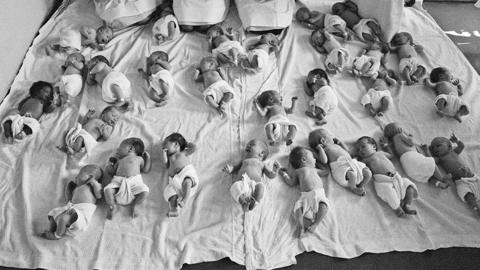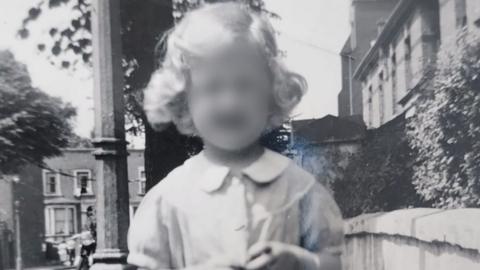This, of course, meant nothing to Susan for decades.
She grew up as part of a "normal, working class" household, met her husband and ended up working for the NHS herself in a "hands-on" clinical role.
Other than "a bit of the usual trauma" in her teenage years, she remembers her parents as a "very good, loving" couple who "did everything they could and always encouraged me".
"In a way, I'm so glad they are not here anymore to see this," says Susan. "If they are up there watching me, I really hope they don't know what's gone on."
If home DNA tests had been available earlier, she doesn't think she could have told them the truth "because it would have been so awful".
"But I really don't think that for me, anything has changed about them, they are still mum and dad," she says.
On the other hand, her relationship with the man she has always known as her older brother has, she thinks, been strengthened by what she's gone through.
"It's actually brought us closer together. Now we meet up more often and I get cards sent to 'my dear sister'," she says.
"Both he and his wife have been absolutely fantastic, honestly I cannot praise them enough."
She remembers receiving another "lovely letter" from a cousin at the time who told her, "Oh don't worry, you're still part of the family".
As for her new blood relations, she says the situation has been more difficult.
She has met up with the man who contacted her, her biological sibling, and laughs as she remembers how similar they both looked.
"If you'd put a wig on him and a bit of makeup, it could honestly have been me," she jokes.
She has also seen photographs of the other woman who she was swapped with at birth, and her sons.
But building a relationship with that new side of her family has not been easy.
"I know they are my biological relatives but I didn't grow up with them so there's not that emotional connection there," she says.
"They closed ranks, basically, through loyalty to their sister which is admirable and I understand."
Susan's genetic parents died some years ago but she's been told she looks like her biological mother.
"I'd still like to know a bit more about her – what she was like and all that – but I never will, so there you go," she says.
"But if I take the emotion out of it, and just think logically and clearly, I was better off how I grew up."


